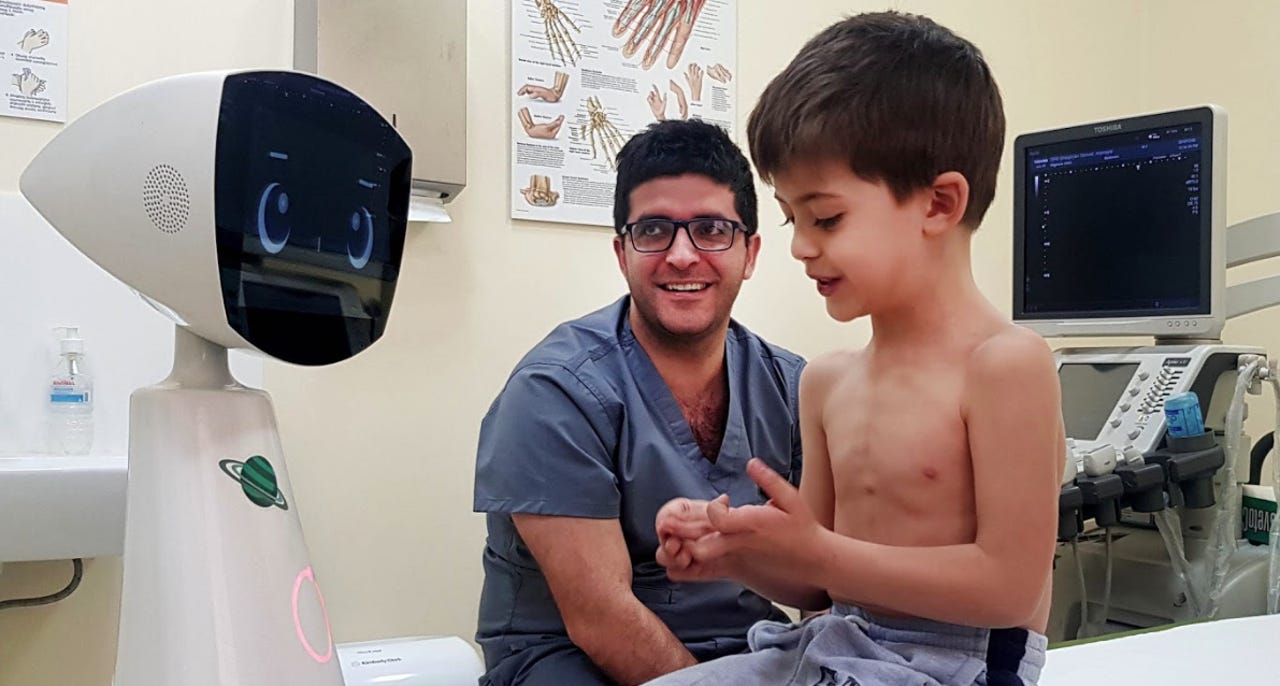UCLA Children's Hospital implements new AI robot to improve mental health during treatment

Modern medicine can often create magic, but often an extended stay in hospital can significantly impact mental health, especially in children separated from their parents for the first time in their lives.
Now a new AI robot is being introduced into US hospitals to help children be happier during their hospital stay.

Robin is an AI robot built by Armenia-based startup Expper Technologies, which has been designed to help kids in hospitals beat loneliness and isolation.
Primers
Children can be very vulnerable to the effects and stress of intensive treatments with unfamiliar people, complex equipment, and painful procedures.
The robot, sized at just under four feet tall and weighing 55 pounds, is intended to be a friendly companion robot with a child-friendly design, which interacts with children to distract them from the process. It is used to establish a peer-to-peer connection with children to ease their stress.
Robin is made of fully recyclable bioplastic, which can be sterilized with UV light or other disinfectants to minimize the risk of a virus contagion.
The robot utilizes AI-based, patent-pending technology to build peer-to-peer emotional interactions with children. The technology uses reinforcement learning to anchor relevant emotional reactions by analyzing facial expressions and context of conversations.
It builds a memory model so that the robot can intelligently react by replicating patterns formed upon previous experiences.
It remembers children's emotions, patterns of conversation, facial expressions, and behavioral patterns), building follow-up dialogues considering individual features of a particular child.
Robin is equipped with an omnidirectional wheel system, and can navigate in a medical setting, moving from room to room, and can visit multiple patients during a day.
Its emotional expression system consists of various emotions and facial expressions that depict each emotion. Its emotional intelligence technology allows Robin to express emotions and react naturally to situations and interactions with children.
The company started to develop Robin in 2018 raising funds from Silicon Valley pre-seed venture capital companies HIVE Ventures and SmartGateVC.
Expper plans that later, in 2020, the robot will be able to recognize children's age, speech, learn psychologists' answers, and questions and reproduce accordingly.
A pilot study with the robot was conducted at Wigmore clinic in Yerevan. During the nine-week study, 85 children ages between 4 and 12 years old participated. The survey showed that the Robin robot increased the joyfulness level of children by 26% and reduced stress levels by 34% during their hospital stay.
The company recently announced that UCLA Mattel Children's Hospital has deployed Robin for peer-to-peer interaction with children.
It has also revealed that it signed a contract with ABC Kids Dental Group, which will be Robin's second house in the US after UCLA. It also expects to deploy the robot in major hospitals in California.
Interactive robots such as Robin would benefit other patients in the hospital in addition to children. Anyone who has ever spend some time in the hospital will know what an isolating experience it can be.
Interaction with anyone -- even an AI robot -- could improve mental health for everyone it interacts with, and that can only be a good thing for improving our health overall.